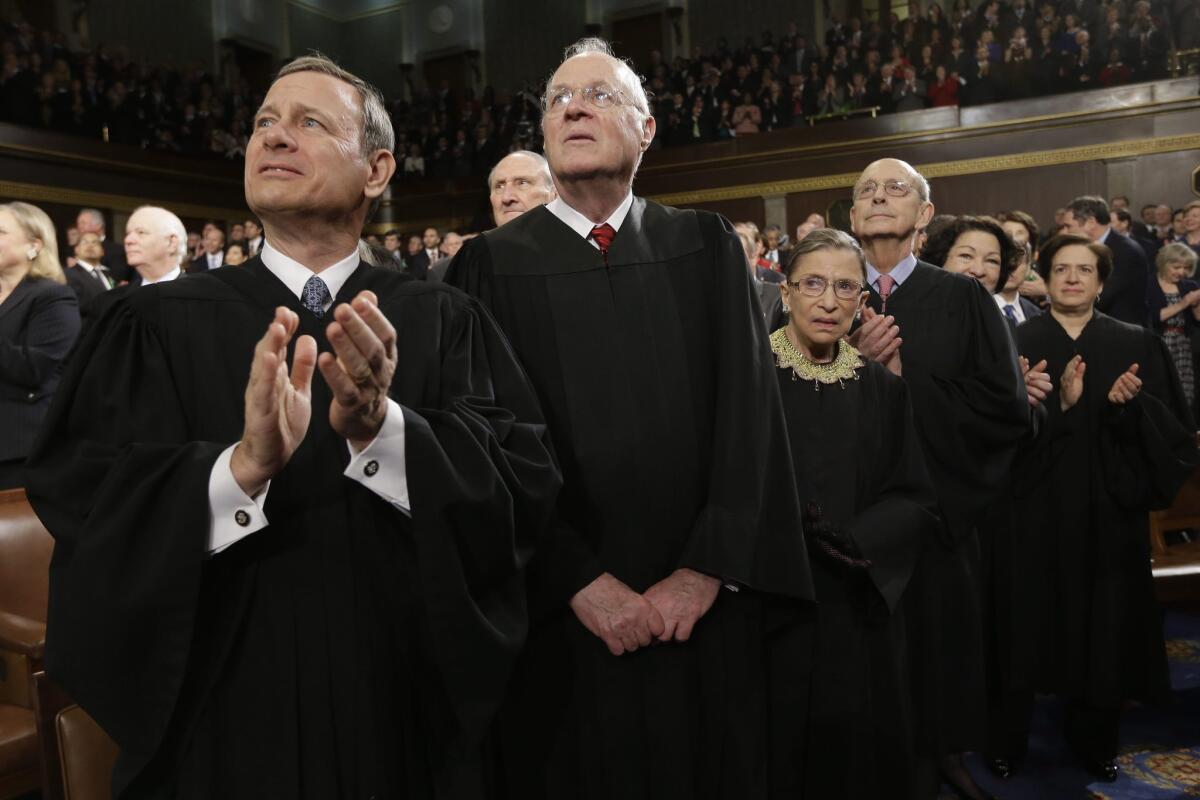Supreme Court to consider eliminating political contribution limit

- Share via
WASHINGTON -- The Supreme Court has agreed to go beyond its controversial Citizens United decision and consider striking down the limit on the total amount that wealthy persons may give to candidates and political parties.
The justices voted to hear an appeal from an Alabama donor and the Republican National Committee, which contends the total contribution limit of $123,200 per election cycle is “unconstitutionally low.”
The case, to be heard in the fall, will focus on a little-known part of the campaign finance laws that set a total limit on contributions by individuals. Under these laws, individuals may give no more than $123,200 for each two-year election cycle. This includes a $2,500 limit for a federal candidate running for office and up to $30,800 per year to the political committees established by the national parties.
If the court were to strike down the limit, wealthy persons could write a single check for more than $1 million a year, which a political party could spread among several hundred candidates who were running for the House and Senate, said Fred Wertheimer, president of Democracy 21 and longtime advocate of the campaign finance laws.
Last year, a three-judge court in Washington upheld the limits on the grounds that the Supreme Court has consistently said that contributions to candidates can be restricted.
By contrast, the high court has said individuals may spend freely on their own for political ads and campaign messages. Three years ago, the court cited this free-spending rule in the Citizens United decision and ruled that corporate groups and unions may spend unlimited sums to back candidates.
That decision did not affect the limits on direct contributions to candidates and parties.
The new case, Shaun McCutcheon vs. FEC, is not an attack on the limits an individual may give to a single candidate. Instead, the court will decide on whether Congress had a valid justification for limiting an individual’s total contributions to candidates and parties.
Follow Politics Now on Twitter and Facebook
More to Read
Get the L.A. Times Politics newsletter
Deeply reported insights into legislation, politics and policy from Sacramento, Washington and beyond. In your inbox twice per week.
You may occasionally receive promotional content from the Los Angeles Times.











